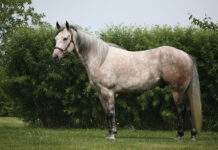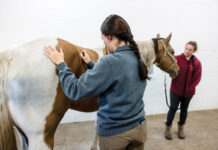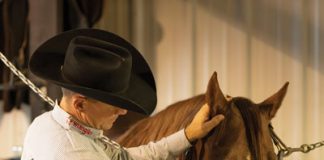Equine herpes virus (EHV) is a difficult disease to control. “It is speculated that 80 to 90 percent of horses become infected with EHV by 2 years of age, and up to 90 percent of adult horses are latent carriers,” says D. Craig Barnett, DVM, senior equine technical services specialist, Veterinary Services, Intervet Inc. These statistics are scary given the recent EHV outbreaks that have claimed several equine lives across state lines.
In latent carrier horses, EHV lies dormant, but can become active during times of stress or poor health, which is why the disease is so hard to control. However, good horsekeeping practices, including vaccination that helps reduce viral shedding from infected horses, can help decrease risk of disease.







I didn’t think they could get this!!
That’s scary
a friend lost his stallion last night.the first vet said it was a twist. the second vet suspected herpes.his horses have had snoty noses all summer and he lost a foal at 7 months gestation a month ago.this person goes to shows regular.why isn’t the cogins test showing that these horses may be infected?i’m kinda freaking out cause we stayed and helped him all day yesterday and never changed clothes or shoes when i tended to my horses last night.